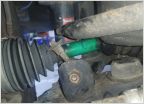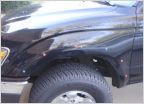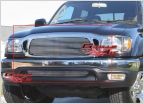-
Welcome to Tacoma World!
You are currently viewing as a guest! To get full-access, you need to register for a FREE account.
As a registered member, you’ll be able to:- Participate in all Tacoma discussion topics
- Communicate privately with other Tacoma owners from around the world
- Post your own photos in our Members Gallery
- Access all special features of the site
Regular gas lasting longer than Plus?
Discussion in '1st Gen. Tacomas (1995-2004)' started by nyg052003, Sep 28, 2016.
Page 1 of 2
Page 1 of 2


 Need Help In A Hurry Please
Need Help In A Hurry Please Help: Removing Fender Flares
Help: Removing Fender Flares 01-04 double cab fender flares??
01-04 double cab fender flares?? New Owner...few questions
New Owner...few questions Front sway bar end links
Front sway bar end links









































































